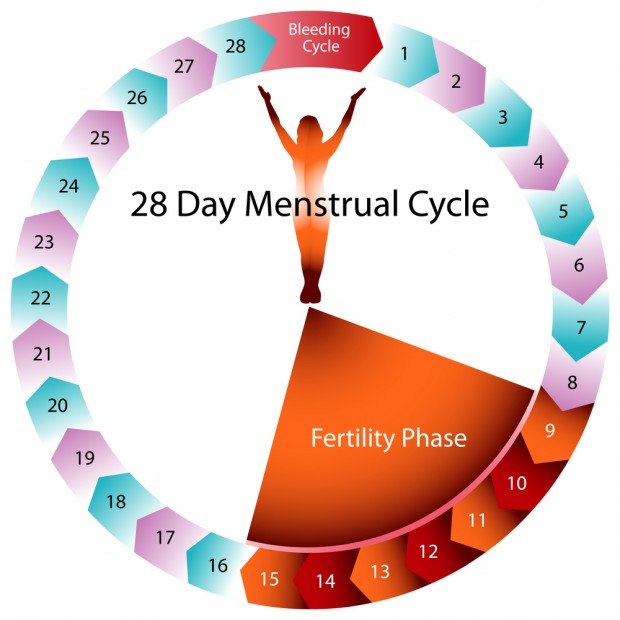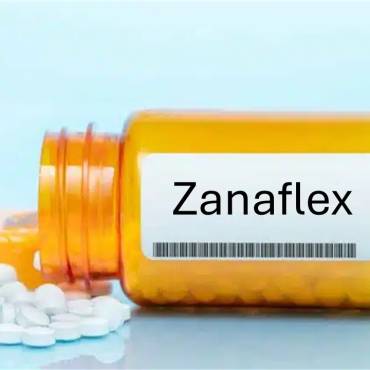Getting pregnant and giving birth to a child is the most beautiful moment one could experience. If we go back in history, we will get to know that couples or our ancestors became parents without following any chart or graphs. It is a total luck when a woman conceives in a single try. But in today’s era we see that it takes a little while for some woman to conceive. Charting of a fertility cycle helps to prevent the odds against getting pregnant or when one can conceive. Let’s see which days are most fertile for women.
Menstruation and Ovulation
Ovulation is when an egg is released from the fallopian tubes. Men can release their sperms any time, but women remain fertile for only 24 to 48 hours after ovulation. After ovulation, an egg travels through the fallopian tubes and it begins to die if not fertilized by sperm during this period. Via menstruation, it is then released from the body.
The period begins in women after every 28 days. But there are few women whose menstruation begins after a month; this creates a problem for them as they are unable to know about her fertile days. The expulsion of an ovum from the ovary occurs in women during 8th or 10th day of menstruation. The 1st day of women’s menstruation is the starting cycle point. The 14th day after the period is the ovulation time in a 28 day cycle. From the day of women’s last period, days 12 to 16 are the most fertile days of the woman. The couple having sex on the days from 10 to 16 increases the chances of woman getting pregnant.
Women having irregular period cannot have regular ovulation, which makes it difficult for them to know about her fertile days without ovulation kits.
 How to tackle infertility
How to tackle infertility
For women facing irregular periods, they can follow these methods to know about ovulation:
- Know about body temperature: In case a woman’s normal body temperature increases, it indicates that ovulation has occurred. Also, if a woman keeps a track of her temperature every day for few months, she may know about her ovulation. There are some women whose temperature increases to half a degree after they ovulate.
- Make use of ovulation predictor kit: This is a much better and accurate method to predict a woman’s ovulation. An Ovulation predictor kit helps to measure the level of the luteinizing hormone in urine. When the LH level rises, it indicates that a woman is about to ovulate. Keep a check on cervical mucus: This is one of the least accurate methods to know about ovulation, predicts whether a woman is in fertility period or not. When the body is ovulating, cervical mucus increases. In case one does not find any watery mucus in the vaginal opening, that means she is not in her fertile period at all.
Getting abdominal pain on any one side also indicates that a woman has ovulated. Sexual intercourse during the fertility period is the apt time of conception and enhances woman’s chances of getting pregnant. But there is no 100% surety of getting pregnant following fertility dates.
There are many couples who try hard, but the woman is unable to conceive. It is not the problem of just female infertility or just male infertility, in some cases the problem lies in both the sexes.
Infertility rate Statistics
According to infertility stats of 2011 and 2012, infertility rates are increasing rapidly. There are two types of infertility named primary and secondary. Primary is a very common kind of infertility when a couple cannot conceive even after having regular unprotected intercourse. Woman’s inability to become pregnant for the second time is secondary infertility. There is almost equal ratio of men and women infertility which is 40% and rest is 20%.
Male infertility: Causes & treatment
- Sperm production in men decreases if they take illegal drugs like cocaine or marijuana.
- Excessive alcohol consumption decreases sperm production and causes erectile dysfunction. It also affects liver functioning which leads to male infertility.
- Men who smoke tobacco affect their fertility which lowers their sperm count.
- Men also face some hormonal problems caused by abnormality of systems like pituitary glands, thyroid and adrenal glands.
- Sperm health also gets affected due to some infections like Chlamydia and gonorrhea, which blocks the passage of sperm.
- Tumor like cancer affects directly male reproductive organs. Any surgery or chemotherapy for tumor treatments may affect male fertility.
Some infertility treatment for men includes:
- A surgery can be done if there is swelling in the veins that affects men’s testicles.
- If some infection has affected male fertility then antibiotics can cure infections, but it does not assure to bring back fertility.
- There are hormonal treatments and medications, prescribed that can change hormone levels of male.
- There are assisted reproductive technologies which mean to obtain sperm through normal ejaculation or from donor individuals. It includes surrogacy, where sperm is inserted in female genital tract who is a surrogate woman. The outcome resulting in a child will be related to the male and surrogate woman. In case treatment does not work couple may choose sperm donor or adoption.
Female infertility: Causes and treatment
Likewise, female infertility is caused by ovulatory disorders that include:
- Hormonal problems– There has to be a balance between hormones, any disturbance may lead to ovulation problem. Failure to produce mature eggs, malfunctioning of hypothalamus and pituitary glands are the main sources causing hormonal imbalance
- Scarred ovaries- If a woman faces any physical damage to her ovaries or infection it may disrupt her ovulation. Surgeries for ovarian cyst damages the capsules of ovary, due to which follicles do not mature.
- Damage to fallopian tubes- When the fallopian tubes get damaged it creates the problem of ovulating. Common causes are infection, abdominal diseases, previous surgeries on pelvic or abdominal, ectopic pregnancy and congenital defects like tubal abnormalities or uterus irregularities.
Fertility treatments benefit those women who face problems of ovulation. The treatment does not assure 100% success to the ones whose fallopian tube gets damaged. The three types of infertility treatments include: how to treat infertitlity
- Medication- Clomiphene is a medicine taken by patients orally. Hormones are made with the help of this medicine, causing eggs to mature in female ovaries. Gonadotrophins are the hormones which are injected in a woman on 2nd or 3rd day of periods, stimulating the growth of eggs in ovaries. This method is used when a patient do not react to clomiphene. There are also Bromocriptine and Cabergoline medicines for treating high levels of hormone Proclactin that can stop ovulation.
- Surgical treatment- A surgery can be done to repair damaged fallopian tube or remove blockages in the tube. A surgery is also helpful in removing uterine fibroids, polyps or scars causing infertility in women.
- Assisted reproductive technology- In case a woman does not get pregnant even after treatment with medical and surgical methods, she may shift on to ART which includes:
- Intrauterine Insemination is when male’s sperm is inserted into female uterus through long and narrow tube. This is an effective method for treating men who cannot get erections, or have low sperm count and women having defects in cervix. It can be done with medications that stimulate ovulation and enhance pregnancy chances.
- In vitro fertilization eggs and sperm are collected from the couple and incubated in laboratory to make an embryo. Then an embryo is placed in woman’s womb where it grows, resulting in successful pregnancy. Steps of IVF are:
- Stimulation of egg maturation
- Egg retrieval
- Fertilization
- Embryo transfer
The above are some infertility treatments for the women which can be adopted to have a healthy baby. In case medicines for infertility and surgeries do not work, a couple may also resort to surrogacy and sperm donation.
Final words
Fertility calendar prevents the odds of getting pregnant. One can now plan their pregnancy very well by following fertility chart. In case it does not go in your favour, one can take fertility treatment depending on their financial condition. Not just female treatments, but male treatments are also available now.
Feel free to share your thoughts and views in the comments section below. Also, share this article with your friends.
Also see: Diet and PMS: How Are They Related
.



